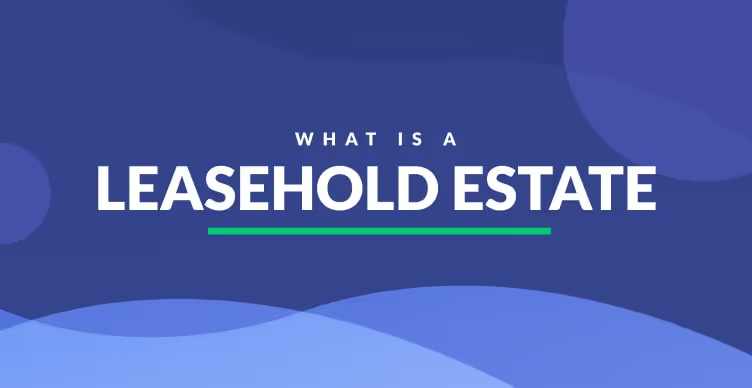If your landlord has provided you with an estoppel certificate, you may have some pressing questions. Maybe you are not sure what the document involves or how it impacts you and your present living situation. Because an estoppel certificate is legally binding for both you and your landlord, great care must be taken when completing and returning one.
Furthermore, you may be unsure whether you are required to sign it, when you should sign it, or how to evaluate an estoppel certificate. Here is everything you need to know.
What Is a Tenant Estoppel Certificate?
A tenant estoppel certificate is an agreement signed by a tenant that indicates the present status of their lease. On the estoppel certificate, a tenant confirms certain details of their lease agreement, such as their monthly rent and their security deposit. This is intended to aid the third party in their due diligence. Most of the time, a third party requests an estoppel certificate if they are either a potential buyer of the property or a lender.
An estoppel certificate is also referred to as an estoppel letter, an estoppel agreement, a rental information questionnaire, estoppel, or a tenant rental information declaration.
Why do Landlords Request Tenant Estoppel Certificates
Typically, when the owner of a multi-unit property sells or refinances the property, an estoppel certificate is usually requested. It is an essential component of a lender's or buyer's due diligence.
When selling a property, a landlord may be asked to obtain an estoppel certificate from their tenants. This is because a potential buyer may want to understand the leases they are taking over. Before funding the transaction, the lender is also likely to want to evaluate the tenant estoppel certificates.
If an investor has the property refinanced, the tenants may be obligated to provide such a document. The lender uses these to confirm that the tenants are paying the landlord what the landlord says they are, that the lease terms are what the landlord has said they are, and that there are no pending tenant disputes.
What Types of Properties Require an Estoppel Certificate?
Three types of properties typically require estoppel certificates. They are multifamily real estate, some residential real estate, and commercial real estate. In the next section, we discuss these types of properties to give you a better understanding of why estoppel certificates may be required.
Multi-family Real Estate
Because multifamily properties can have multiple tenants, there are numerous leases involved. While there may not be as many tenants as a commercial property, understanding tenants in multifamily real estate can be tricky. If there are disagreements about the amount being held for security deposits, or all tenants are awaiting electrical or plumbing repairs, a new owner may be in for some costly surprises.
Multifamily properties could indeed come with many liabilities, so a new owner must be prepared, and lenders (financial institutions) must know if anything could jeopardize the new owner's capacity to pay their mortgage.
Residential Real Estate
Tenant estoppel agreements are uncommon in residential real estate compared to commercial real estate and multifamily properties. When there are only a few leases, there isn't that much at risk, and an inspection of the property usually reveals any possible problems a tenant might have with a property. However, this does not rule out the possible benefits of an estoppel certificate to someone who is interested in the property. Verbal agreements or undocumented understandings between tenants and landlords are sometimes used in residential rental real estate.
A property owner could agree to allow a tenant to get a pet after a lease was drawn up stating that no pets were allowed, or one tenant could have been allowed to use two parking spaces because another tenant did not own a vehicle. These issues could be a dilemma for new owners if they aren't adequately prepared for them.
Commercial Real Estate
Commercial leases typically have a lot on the line. Rent payments for commercial real estate generally are much greater than that of residential or multifamily properties. Furthermore, commercial real estate rental leases commonly contain rent abatement and regular adjustments to the rent amount. There are also various concerns regarding who is responsible for specific expenditures, and how CAM charges are determined. Uncertainty about a tenant's understanding of commercial leases could lead to unpleasant surprises for a prospective buyer.
Is a Tenant Obligated to Complete an Estoppel Certificate?
A standard lease agreement should include a clause requiring the tenant to provide an estoppel letter upon the landlord's request. This is usually assigned a reasonable time frame. Therefore, if your lease indicates that you must complete an estoppel certificate is requested, it is mandatory to do so within the specified time frame.
Many rental agreements state that if the tenant fails to complete and return the estoppel certificate as requested by a specific date, the landlord may complete it themselves. Other leases state that the tenant's refusal to provide the estoppel certificate timeously is considered an acceptance that everything stated in the estoppel certificate is accurate.
Some leases state that if the tenant fails to produce the required estoppel certificate on time, he or she must pay a penalty fee, or be held liable for any damages the landlord may have incurred because of the tenant's failure to return the estoppel certificate on time.
A tenant is not obligated to complete and return an estoppel agreement if there is no such lease provision in the lease. In fact, signing the certificate is almost certainly detrimental to the tenant. By signing the estoppel certificate, a tenant confirms that the information provided on it is accurate. However, the information may be incorrect and legally enforceable on the tenant, whether intentionally or unintentionally.
Suppose an estoppel certificate is returned with incorrect lease details. In that case, the lender, owner, or buyer can rely on the lease terms as stated in the estoppel certificate, fundamentally altering the tenant's privileges.
Should You Sign an Estoppel Certificate?
Even if a lease does not demand an estoppel certificate, there are certain circumstances in which a tenant is advised to sign an estoppel agreement. A tenant should sign the agreement if he or she has verbal agreements with the landlord that have not been documented in writing.
An example is if a landlord verbally agreed to let a tenant keep a pet on the rental property, the tenant should include that detail in the estoppel certificate so that the buyer is aware of this privilege. Agreements concerning utility payments, storage space, subletting, rent reductions, the use of communal areas, interest on security deposits, and rent hikes are also examples.
Additionally, suppose a tenant resides in a rent-controlled area and is protected from some types of evictions due to disabilities, old age, or terminal illness. In that case, the tenant is advised to sign the estoppel certificate. In such a case, it is prudent to consult with a relevant agency or a rental rights attorney to establish whether protected status is applicable and whether property restrictions may be implemented following certain no-fault evictions.
Items Absent from the Lease Agreement That Should Appear on Tenant Estoppel Certificates
You might have made other verbal arrangements with your landlord that are not included in the lease or contravenes what it states. You should consist of any of these agreements in your estoppel certificate if you wish to keep them.
Here are some examples:
- The free use of a storage area
- Permission to have a pet
- Exclusive use of a backyard or other space
- Permission to sublet
- The use of a particular parking space
- Reduced rent following an agreement to maintain part of the building
The Effects of Signing a Tenant Estoppel Certificate
The contents of estoppel certificates are believed to be accurate and are binding for both the tenant and the landlord, and the truth is that even if the contents are incorrect, they are considered definitive. This implies that estoppel certificates are legally binding to tenants. Landlords are also barred from contesting the authenticity of the estoppel certificate. If there is uncertainty between the estoppel certificate and the rental agreement or any other written agreement, the court read these documents together with the estoppel letter to resolve any confusion.
Thus, the key point to take home is when filling out the estoppel letter is that tenants must ensure that the data contained on the document is accurate, factual, and complete. This prevents any confusion and protects the rights of the tenant. Before completing this document, a tenant must carefully examine their rental agreement, addendum, and any other agreements they have with the landlord.
Risks Associated with Signing an Estoppel Agreement
In most cases, a properly completed estoppel letter poses no risk to the tenant. However, if its contents are incorrect and define rights that are in conflict with the lease terms, tenants may have a problem.
Although it is uncommon, tenants may be sued for an erroneous estoppel letter, especially in rent-controlled areas. Because it is a legally binding document, it should not contain any provision that contradicts the lease. Therefore, tenants should exercise extreme caution in ensuring that every provision noted in the estoppel agreement is correct and complete.
An estoppel letter should not replace an actual lease, and a tenant should refuse any provision that modifies or limits their rights under the lease. Tenants must also exercise caution when completing the information on the estoppel agreement that is already included in the lease. Inaccurate or incorrectly entered information can result in confusion and ambiguity.
Be sure to list the lease, as well as any amendments, addendums, or side agreements on the estoppel certificate. If you fail to include any essential details about your tenancy that are beneficial to you, the new landlord can deny you those privileges later.
What Does an Estoppel Certificate Contain?
Upon a landlord's request, you must complete the contents of an estoppel certificate. The estoppel certificate requests information such as:
- The date the lease began and when it is expected to end
- Personal data pertaining to the tenant, including their name and contact details
- Information regarding the property in question
- The monthly rent amount
- Any unpaid rent owed to the landlord
- Prepaid rent that was paid to the landlord in advance
- Work not completed by the landlord that is required by the lease
- Confirmation that the lease has not been amended or altered in any way, or a statement of all modifications made to it
- Information about the security deposit
- The last date to which rent has been paid to the landlord
- Verification that no defaults exist, or a statement of defaults made by the landlord or tenant
What Happens If a Real Estate Agent Does Not Forward Your Estoppel Letter in Time?
Realtors are required to forward all estoppel certificates to prospective buyers timeously. A buyer may sue a real estate agent or a seller who delivers an incorrect estoppel letter for damages or fails to submit it at all after a tenant has completed it.
While this does create a problem for the agent, the buyer, and the seller, the tenant remains unaffected, as long as they did meet their obligation by accurately completing the estoppel letter and submitting it on time.
Final Thoughts
Estoppel letters are legal documents that tenants must complete and submit, as long as their lease requires them to do so. These estoppel letters are often requested when a property is being sold or refinanced so that the new buyer or lender can understand the terms of the agreement between the landlord and the tenant, and any agreements that have been made verbally that were not included in the lease.
Because a commercial tenant is not legally required to sign an estoppel certificate unless stipulated by a lease, the owner of the property who intends to sell it must include a provision in the lease requiring the tenant to return an estoppel certificate when requested by the landlord.
Often, a commercial lease may specify that if a tenant delays, or refuses, to provide estoppel certificates, the landlord has the legal right to complete it, or that the tenant's failure to submit the certificate means he agrees to the facts presented therein.
Should you require more information or discuss your circumstances, it is advisable to seek legal advice from an attorney to determine what tenant's rights are applicable in your particular case.
Frequently Asked Quesitons
What Is Estoppel Certificate?
An estoppel certificate is an agreement that is signed by the tenant to indicate the current status of the lease and confirm important details. Some details included here include the monthly rent, the security deposit, and many other important features.






.svg)
.svg)

